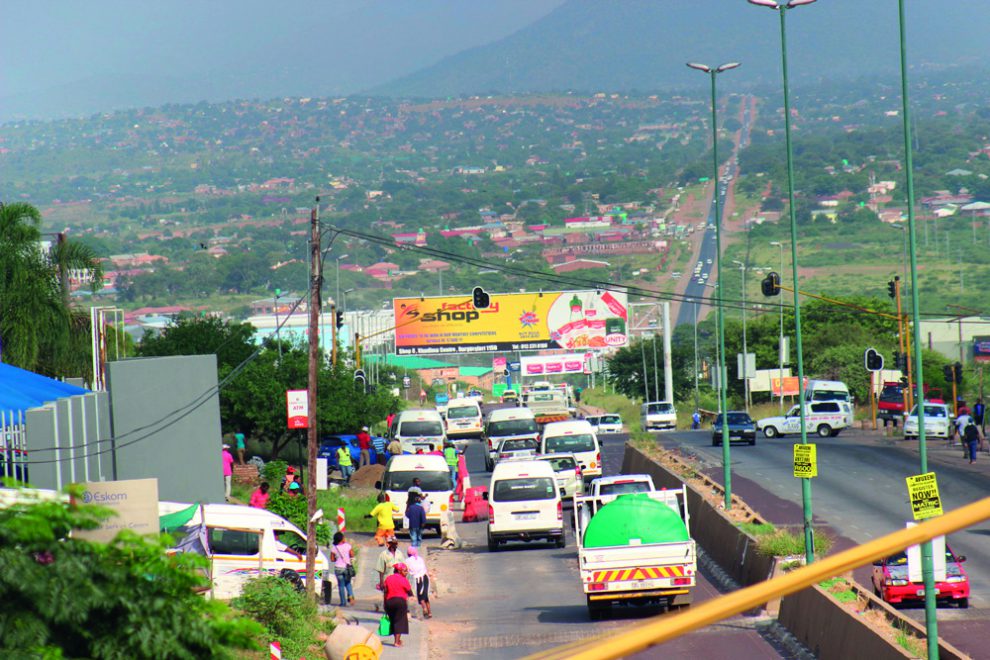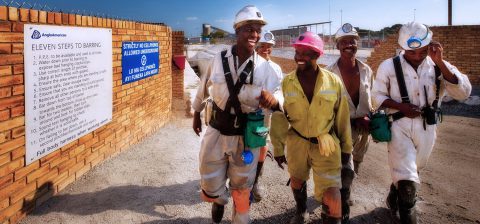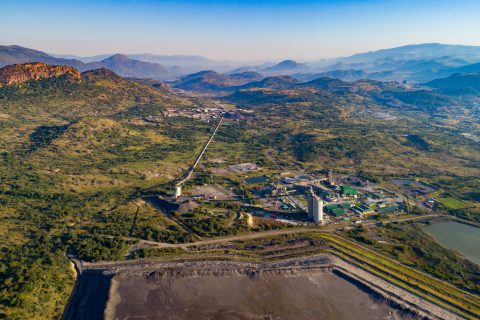CSI
Partnerships Help Towns To Prosper
The town of Burgersfort in the platinum-rich Sekhukhune region of Limpopo is nondescript. Taxis, buses, private vehicles and people jostle for space on the main road that passes through the town. Old, established businesses such as supermarkets, banks and furniture stores have been doing brisk business on the main road since time immemorial.
But many towns the size of Burgersfort are struggling. Unable to provide jobs for the populace, the towns have seen an exodus of residents to bigger cities or to towns in other provinces. Burgersfort, however, is bucking the trend thanks to the economic contribution made by the platinum mines, including Anglo American Platinum’s (Amplats) flagship Twickenham project, that surround it. The spin-offs from the mines have been phenomenal for this small town.
Hundreds of locals are employed at surrounding mines or subcontracted to provide other crucial services. A sizeable shopping mall and a casino have been built on the outskirts of the town thanks to the mining boom.
These developments are not only benefiting the town, but also the villages surrounding it. Roads Agency Limpopo (RAL) – an agency of the Limpopo provincial government responsible for road infrastructure in the province – has partnered with Amplats to fund the tarring of the D4 180 road that connects 11 villages to the company’s Twickenham mine.
In terms of the agreement, Anglo American Platinum has allocated about R46.8-million toward the design and construction of the 20-kilometre road that will stretch from Atok, passing through Ga Mashabela and ending in the Ga Selepe area. RAL will contribute the difference for the project, estimated at R200-million.
Indresen Pillay, executive head of projects at Anglo American Platinum, says it is the first time his company has entered into a partnership whereby they co-fund an infrastructure-investment project with a state entity. “In the past,” he says, “Anglo would build a school or a clinic for a community and hand over the completed project to either the Department of Education or Health.”
He says the company was initially concerned about issues of governance, capability, capacity and leadership. However, they were impressed by the solid management structure and expertise that exists within RAL to handle such a dynamic partnership project.
“What RAL has demonstrated is that they have the governance in place, they have the capacity and capability in place, and they have the funding mechanism in place to be able to allow this to happen,” he explains. “When you have the stars aligning in that way, it makes it feasible to enter into these kinds of agreements.
Pillay says his company is excited to share ideas and expertise with a state agency and is committed to seeing the entire project through to completion. “This is not something where we are going to write a cheque and walk away,” he says. “We will continue to be partners in the delivery of this project, and as partners, we will learn from one another.”
Anglo American Platinum aims to use this project to boost the local economy, not only by employing workers from the communities to be served by the road under construction, but also by procuring materials from locals and developing suppliers who are able to provide raw materials to the main contractor.
Anglo has also completed a number of road infrastructure initiatives for communities neighbouring its Twickenham mine and the Greater Tubatse Municipality. These include:
A 1.3-kilometre internal road in the Greater Tubatse Municipality connecting Ga Makgopa and Swazimanyane villages. Another 4.3-kilometre road will be completed this year.
Two access bridge roads in close proximity to the Marapong and Dithabaneng communities, which will benefit a number of road users.
A R20-million contribution for the upgrade of the R37 carriageway, a crucial road that connects Sekhukhune region to the rest of the province.
Amplats CEO Chris Griffith says that entering into a partnership with a provincial roads agency for the benefit of the communities around its mines was part of his company’s corporate social investment initiatives.
“We believe in playing an active role in understanding and supporting the plans aimed at improving the local economy and the livelihoods of community members. Partnerships like these ensure that we work collaboratively to create value for the communities in which we operate,” he says.
Last month, RAL signed a memorandum of agreement with Ledjadja Coal – the operating subsidiary responsible for Boikarabelo mine on behalf of owners Resource Generation – to upgrade the road from the Lephalale commercial sector to Steenbokpan. The upgrade will also include all connecting roads to the mining site.
In terms of the agreement, the mining company will contribute R71-million of the more than R200-million project cost for upgrading the road from Steenbokpan to the mining areas. Detailed road designs have been completed and paid for by Ledjadja Coal.
RAL has also partnered with Exxaro Coal in the Waterberg region to design and construct a road connecting Ga Seleka villages to the Lephalale commercial centre. The estimated project cost is R234-million, of which Exxaro contributed R71.2-million, with RAL providing the balance. The project is currently in the process of appointing a contractor. Martin Ramaboea, project manager at Exxaro Coal, explains that this was the company’s way of leaving a lasting legacy in an area where they have significant mining operations.
“We are a caring mine and we work with the community, we want to leave a lasting legacy for our communities. And most of our employees reside in the areas that will benefit,” he says.
Ramaboea says the public-private partnership tie-up attracted them because it also had the potential to alleviate high unemployment in the area.
“We have seen that unemployment is rife and so, over and above creating road infrastructure, we also want to create employment.”
RAL CEO Maselaganye Matji says the partnerships with the mining companies were crucial because the agency needed R150-billion to address its 14 000-kilometre backlog of gravel roads,” he says.
“There is no way that the fiscal can be sufficient to address the backlog. Secondly, there is a need for appropriate skills to support infrastructure planning and support. It is within this context that we have adopted a strategy to partner with the mining companies. Limpopo province has five districts, of which two have significant mining activities.”






 Sign-up and receive the Business Media MAGS newsletter OR SA Mining newsletter straight to your inbox.
Sign-up and receive the Business Media MAGS newsletter OR SA Mining newsletter straight to your inbox.